 Petzlover
Petzlover Russo-European Laika is originated from Russia but Tosa is originated from Japan. Russo-European Laika may grow 22 cm / 8 inches shorter than Tosa. Russo-European Laika may weigh 67 kg / 147 pounds lesser than Tosa. Both Russo-European Laika and Tosa has same life span. Both Russo-European Laika and Tosa has almost same litter size. Both Russo-European Laika and Tosa requires Low Maintenance.
Russo-European Laika is originated from Russia but Tosa is originated from Japan. Russo-European Laika may grow 22 cm / 8 inches shorter than Tosa. Russo-European Laika may weigh 67 kg / 147 pounds lesser than Tosa. Both Russo-European Laika and Tosa has same life span. Both Russo-European Laika and Tosa has almost same litter size. Both Russo-European Laika and Tosa requires Low Maintenance.
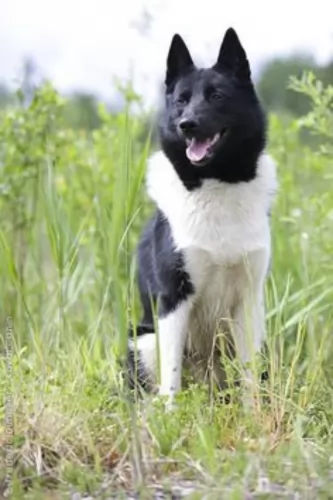 The Russo-European Laika is a hunting dog that comes from Russia.
The Russo-European Laika is a hunting dog that comes from Russia.
It is a dog that has been developed from Spitz type dogs. A breeding program was started for the dog in 1944.
The Russo-European Laika dog is recognized by the Federation Cynologique Internationale in the Spitz and Primitive type group.
 Known also as the Japanese Mastiff, the Tosa hails from Japan. In fact, these dogs come from the Tosa Province, so the dog was named after the region where they were bred.
Known also as the Japanese Mastiff, the Tosa hails from Japan. In fact, these dogs come from the Tosa Province, so the dog was named after the region where they were bred.
It is why they are sometimes referred to as Japanese Mastiffs. The Tosa is a rare dog breed and unfortunately, the dog is still used in Japan for dogfighting.
The breed was developed in the 2nd half of the 19th century, with a number of dog breeds being involved to bring about a more powerful, braver dog.
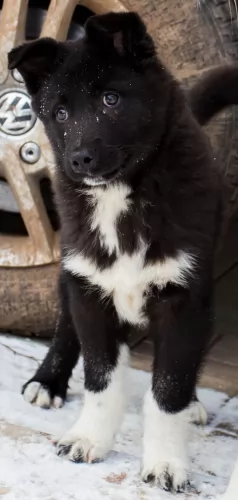 The Russo-European Laika is a medium sized dog Spitz dog that stands at between 54 to 60cm in height and weighs in the region of 20 – 23kg.
The Russo-European Laika is a medium sized dog Spitz dog that stands at between 54 to 60cm in height and weighs in the region of 20 – 23kg.
The dog has quite a strong resemblance to the Karelia Bear Dog. They are sometimes mistaken for each other.
The Russo-European Laika has the typical triangular shaped head with small dark eyes, a black nose and erect, pointed ears. These are deep chested dogs.
As with other Spitz breeds, this dog has a thick fur with a densely furred tail which is curved over the back. The double coat is fairly long and usually a dark grey color or black with some white markings. Sometimes the dog has a white coat.
This is a lively, energetic dog breed that loves to spend time outdoors. It has always been used to alert hunters to prey, using its bark to alert the hunter.Training and socialization will be necessary for the dog if you don’t want it to be barking in the house too.
He makes an excellent guard dog, protecting his human family. It is very tolerant of children too, getting on well with them as well as other pets.
The dog is known for being totally devoted to its family, being an affectionate and loyal breed that doubles as a family pet and guard dog.
 The Tosa is a large dog, but their sizes vary, and in fact, because of their fighting, they are actually divided into light-, middleweight and heavyweight classes.
The Tosa is a large dog, but their sizes vary, and in fact, because of their fighting, they are actually divided into light-, middleweight and heavyweight classes.
Generally, you can say that these dogs weigh in the region of 54 to 90kg and they stand in height at between 62 to 82cm. The head is large, the jaws powerful, the eyes dark brown in color, the ears small, high set and floppy.
The neck is broad wit a dewlap and the tail is long, thick and tapering to a point. The coat is short and thick and is most times a rich caramel color, fawn tan, black or brindle. The dog often has a black mask.
The Tosa is a fairly quiet dog, courageous and fearless. He is going to need a strong, consistent owner who shows leadership with him. Training and socialization will be imperative for this dog.
When he has been properly reared and trained, he makes a good pet, able to get on with members of the family. He takes his role as protector and guardian seriously.
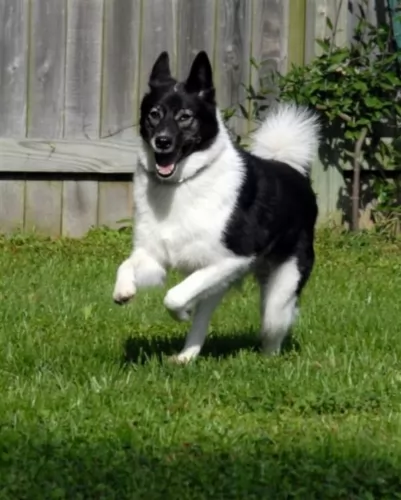 This is an intelligent dog breed, loving the time he spends with his human family but reluctant to be patted by strangers.
This is an intelligent dog breed, loving the time he spends with his human family but reluctant to be patted by strangers.
They also get along with pets that they have grown up with. They get on well with kids and make great watchdogs too. Small wonder they make such sought after pets and companions.
 The Tosa isn’t recommended for first-time dog owners, as in the wrong hands, they can become aggressive. Care has to be taken around children too especially undisciplined ones.
The Tosa isn’t recommended for first-time dog owners, as in the wrong hands, they can become aggressive. Care has to be taken around children too especially undisciplined ones.
He also doesn't come as recommended for small, cramped homes in the city. He’s just too big and he will need to get out and be walked often.
You want to create a home for him that ensures he is the calm, gentle dog he is capable of being, If you’re fair, firm, caring, patient and consistent, then this big dog might be for you. With the right care he becomes a gentle, devoted pet.
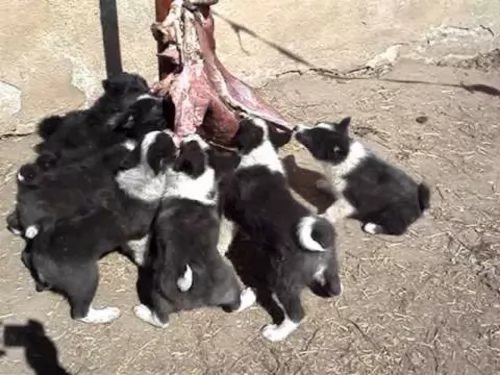 These Spitz type dogs are always known to enjoy good health, and owners don’t have to worry too much about their health as only a small number of health issues are reported with this healthy dog breed.
These Spitz type dogs are always known to enjoy good health, and owners don’t have to worry too much about their health as only a small number of health issues are reported with this healthy dog breed.
This is a congenital defect in the abdominal muscles and can result in fat or tissues being evident under the skin. A bulge is often seen in the area of the abdomen. Larger hernias will require surgery.
 The Tosa is a formidable looking molossoid, but even so, this big, calm dog can succumb to illness. Some of these diseases you need to be looking out for include bloat,hip dyslasia and eye conditions.
The Tosa is a formidable looking molossoid, but even so, this big, calm dog can succumb to illness. Some of these diseases you need to be looking out for include bloat,hip dyslasia and eye conditions.
Bloat for this dog can be life-threatening, and can often be because the dog is too hungry and he gobbles up his food quickly. Bloat is when gas can't escape, the stomach swells and twists – very dangerous. Rather give your dog two smaller meals – one in the morning and one in the evening, or even give several smaller portions throughout the day.
To help with eliminating health issues always choose a reputable Tosa breeder. You’re not likely to find one of these dogs in a dog shelter.
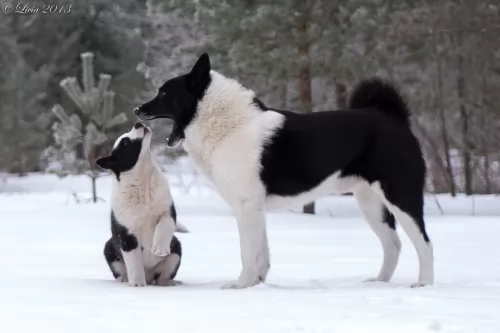 This is an energetic dog and will require a good amount of excerise. This dog isn’t suited to living in the city as they are highly active. Apart from wanting large grounds to run around in, he will need walks as well as ball- and rope games to keep him busy.
This is an energetic dog and will require a good amount of excerise. This dog isn’t suited to living in the city as they are highly active. Apart from wanting large grounds to run around in, he will need walks as well as ball- and rope games to keep him busy.
He is intelligent and needs some form of mental stimulation. There are good quality toys which one can buy for these dogs than can make them think.
Many things can change a dog’s longevity, and diet is one. A good nutritious diet with vitamins and minerals will give your dog less of a chance to get sick.
If you go for the best quality commercially manufactured dog foods, you’ll find that they are both convenient and well balanced.
To provide your dog with just a bit of variety in his diet, some home-made food added into the dry kibble from time to time will delight your pet.
No need to make preparing the food a huge issue either. Boil brown rice and chicken in a pot and add in sweet potatoes, carrots and spinach. Chop all this up and add small portions of it into the dry kibble.
Try to include a bit of raw meat occasionally and never let your dog be without a constant source of fresh, cool water
 These large, strong dogs do well on good quality food. If you opt to buy him commercially manufactured food, make sure it is the top quality one free of unwholesome ingredients such as preservatives, colorants and useless fillers.
These large, strong dogs do well on good quality food. If you opt to buy him commercially manufactured food, make sure it is the top quality one free of unwholesome ingredients such as preservatives, colorants and useless fillers.
Invest in the best quality ones that have nutritious minerals and vitamins. Try and give your dog some home-prepared food too – boiled chicken, brown rice or pasta, spinach, sweet-potatoes and carrots.
Never feed your dog things such as chocolates, peanuts, crisps, grapes, onion and food with spicy flavorings. This will just ensure digestive problems and having to get your dog to the vet.
The Tosa’s short coat isn’t going to require too much attention. A good brush twice a week will keep it free from loose hair and keep its shine and gleam. It’s why the dog is looked upon as being low maintenance.
Beyond that, he will need to have his nails trimmed. When brushing him, check him over for parasites – ticks and fleas, check for unusual lumps and look inside his ears for signs of redness.
These dogs are calm and fairly low-energy. Nonetheless, to maintain good health, he will need to be exercised. Ball games outside are always a good idea as well as nice long walks. Hikes into the countryside will be wonderful for this big dog.